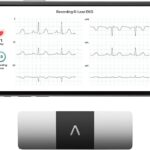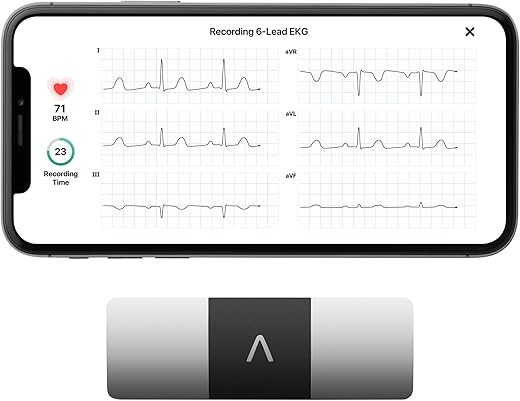Taking Charge of Our Health
Did you know that nearly 70% of adults now own at least one smart health device? This staggering figure illustrates a monumental shift in how we approach personal health. We’re no longer passive spectators in our well-being; we have the power to take control of our health journey.
Smart health devices—think fitness trackers, smart scales, and even connected blood pressure monitors—are revolutionizing our ability to understand and manage our health. These innovative tools provide real-time data, enabling us to make informed decisions about our bodies and lifestyles.
As we dive into this article, we will explore the technology behind these devices and uncover the multitude of benefits they offer. From seamless integration into our daily routines to the exciting advancements on the horizon, it’s clear that smart health technology is not just a trend—it’s a profound transformation in personal care for us and our families.
Revolutionizing Health: How Miniaturization and Smartphone Tech Are Transforming Management
Understanding Smart Health Devices
In the vast landscape of health technology, smart health devices stand out as crucial tools transforming how we monitor and manage our well-being. But what exactly qualifies as a smart health device? Simply put, these are technological gadgets designed to track and enhance our health through advanced features and data connectivity.
Types of Smart Health Devices
- Wearables: Devices like fitness trackers and smartwatches continuously monitor metrics such as heart rate, steps taken, or even sleep patterns. For instance, the offers an array of features that keep us informed about our fitness levels while integrating seamlessly with our daily activities.
- Smart Scales: These devices don’t just measure weight; they provide insights into body composition, allowing us to track muscle mass and fat percentage over time.
- Mobile Health Apps: We can leverage apps that connect to wearables or smart devices to centralize health data. These platforms enable personalized goal setting and insightful analytics, helping us stay motivated and informed.
- Connected Home Health Technologies: From smart thermometers to Bluetooth-enabled blood pressure cuffs, these devices offer convenience and accuracy, allowing us to monitor vital health statistics from the comfort of our homes.
With a myriad of options available, understanding the diverse types of smart health devices can empower us to choose the right tools tailored to our health needs. As we explore the benefits of these technologies in the following section, we’ll uncover how they can significantly enhance our health management journey.
The Benefits of Smart Health Devices
The rise of smart health devices brings with it a host of benefits that can significantly enhance our health management efforts. Here, we outline the compelling advantages these devices provide, highlighting how they contribute to better health outcomes for us.
Real-Time Health Monitoring
One of the most compelling features of smart health devices is their ability to offer real-time monitoring. For instance, fitness trackers can keep tabs on our heart rate and activity levels throughout the day. This constant vigilance not only helps us identify patterns but also alerts us when our health metrics deviate from normal ranges, empowering us to take immediate action.
Data Tracking and Insights
Smart devices help us collect and analyze data over time. Whether it’s tracking our daily steps, sleep quality, or food intake, these insights enable us to make informed lifestyle changes. For example, utilizing the allows us to easily track body measurements, making it simple to visualize our progress toward fitness goals.
Personalized Health Journeys
These devices often provide tailored insights based on our individual health data. Many apps can analyze our activity patterns to suggest personalized fitness plans or dietary changes, making it easier for us to stay motivated. By offering a customized approach, we can better address our specific health concerns.
Enhanced Communication with Healthcare Providers
Smart health devices facilitate better communication with healthcare providers. With data securely stored and readily accessible, we can share our health history more efficiently during consultations, leading to more informed decisions and personalized care.
As we integrate these impressive benefits into our daily routines, it’s worth examining how we can seamlessly incorporate them into our hectic lives in the next section.
Integrating Smart Devices into Daily Life
To truly harness the power of smart health devices, we need to weave them into our daily routines. The goal is to make these tools an effortless part of our lives, not just a sundry collection of gadgets. Here are some practical tips that can help us integrate these devices seamlessly.
Fitness Tracking Made Easy
Incorporating a fitness tracker, like the , into our lives can be as simple as wearing it every day. We can set daily step goals and receive reminders to move, making it easier to stay active—whether we’re at work, running errands, or spending time with family. The effortless design and user-friendly app make tracking our progress feel less like a chore and more like a fun challenge.
Medication Reminders
Smart devices can act as our personal health assistants. Many apps—like Medisafe—allow us to set reminders for medication schedules, which can alleviate the mental burden of remembering dosages. This simple integration promotes adherence to our health regimens, ensuring we stay on track.
Dietary Management Simplified
For those of us focused on nutrition, apps like MyFitnessPal connect seamlessly with smart scales to help track food intake and weight changes. By merely logging our meals and checking our weight regularly, we gain insights into our dietary habits. This data empowers us to make informed choices about our nutrition while keeping things straightforward and manageable.
By experimenting with these integrations, we pave the way for a healthier lifestyle. As we explore these everyday uses of smart devices, we must also address the important issues of privacy and data security that come with this connectedness.
Privacy and Data Security Concerns
As we embrace the convenience of smart health devices, it’s essential to navigate the intricate landscape of privacy and data security that accompanies their use. With our health information being one of the most sensitive types of data, understanding how it’s collected and shared is crucial.
Data Collection Practices
Smart health devices often gather vast amounts of personal health information, from our heart rates to sleep patterns. This data can provide invaluable insights but raises questions about who has access to it. For example, many fitness apps and wearables require us to consent to data sharing with third parties, which can range from advertisers to research institutions. This practice highlights the necessity of reading privacy policies to comprehend the extent of data usage.
Protecting Our Information
Here are some actionable steps we can take to enhance our privacy while enjoying the benefits of smart health devices:
While we appreciate the seamless integration of technology into our health journeys, remaining vigilant about how our data is managed is equally important. As we reflect on these concerns, we can consider what lies ahead in the realm of smart health technology and how it can evolve to better safeguard our information.
The Future of Smart Health Technology
As we look ahead, the landscape of smart health technology is brimming with exciting innovations poised to revolutionize the way we manage our health. Here are some trends and advancements we’re likely to see in the near future:
AI Advancements
Artificial Intelligence (AI) is set to play a transformative role in personal health management. Smart devices will increasingly use AI algorithms to analyze our health data more effectively. For example, AI can flag anomalies in heart rhythms or predict potential health issues before they arise, allowing us to seek medical advice proactively. Imagine a smart watch that not only tracks our activity but also provides insights tailored to prevent future health problems.
Telehealth Integration
The surge in telehealth services during recent years shows no signs of slowing down. Expect more smart devices to feature built-in telehealth capabilities, enabling us to connect with healthcare professionals directly through our smartphones or wearables. This seamless integration means that we’re not just collecting data; we’re actively using it to engage in virtual consultations, making healthcare more accessible and timely.
Enhanced Features in Wearable Devices
Wearable technology continues to evolve, with manufacturers focusing on advanced health metrics. Future devices may monitor blood glucose levels non-invasively, provide hydration reminders, or even detect sleep apnea. As we look for more comprehensive health monitoring solutions, these increasingly sophisticated features will hold great appeal.
By remaining aware of these upcoming advancements, we can better prepare ourselves for the smart health devices of tomorrow. The digital health revolution is just beginning, setting the stage for a more connected and informed health journey for all of us.
As we start to embrace these innovations, it’s crucial to consider how they empower us along our health journey in meaningful ways.
Empowering Our Health Journey
As we reflect on the transformative impact of smart devices, it becomes clear that they are not just tools but vital partners in our health management. By utilizing these technologies, we empower ourselves to take control of our well-being, monitor our progress, and make informed choices that align with our health goals.
Let’s embrace the potential that smart health technology offers. Together, we can navigate our health journeys with confidence and an enhanced understanding of our bodies. The future of personal health is in our hands—literally. So, let’s step forward and harness the capabilities of these innovative devices to cultivate a healthier lifestyle for ourselves and our communities.



Leave a Reply